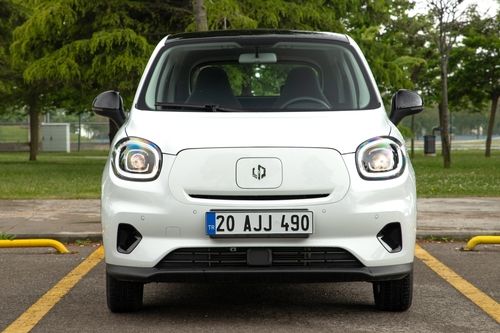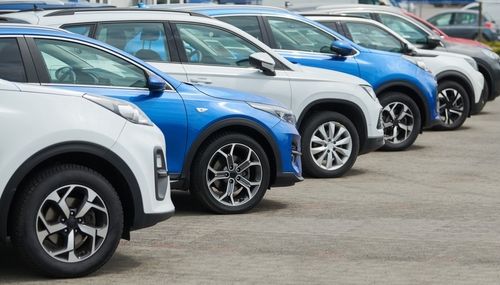Zero Dep Vs Comprehensive Policy
Written by Upstox Desk
Published on July 24, 2025 | 4 min read

As a new motor vehicle buyer, you might have some confusion about the coverage provided by motor insurance policies. A comprehensive policy covers various aspects related to your vehicle, including damage, theft, and accidental repairs. On the other hand, third-party liability insurance only covers the damage caused by your car to third parties up to a designated limit.
However, there is a way to enhance the coverage of your comprehensive motor vehicle policy by opting for a zero-dep add-on. Let us understand how a zero-dep insurance rider (also known as a bumper-to-bumper cover or nil depreciation cover) enhances the value of your insurance policy.
What is Comprehensive Insurance?
Comprehensive car insurance offers more coverage, as it can protect your vehicle from loss or damage resulting from an accident, theft, natural disaster, vandalism, and other similar events. Additionally, comprehensive car insurance also covers third-party liability, including injuries to others and damage to other people's property.
Comprehensive insurance also offers liability coverage for personal accidents to the owner and driver. Comprehensive insurance often provides options for additional enhanced cover through add-on scopes, such as engine protection and roadside assistance.
What is Zero Depreciation Insurance?
Zero depreciation Insurance, also known as 'bumper-to-bumper' insurance cover, is an optional add-on coverage typically found in comprehensive policies. In the event of a claim, the insurer will pay for the full replacement or repair of damaged parts rather than taking depreciation into account. Hence, your claim amount would be higher as the impact of depreciation on certain parts will not be included in the claim.
Typically, the zero depreciation rider can be removed from the vehicle if it is less than five years old. There are, however, a few companies offering such cover even for cars more than 5 years old. Generally, the premiums for this additional coverage will be more expensive than those of a typical comprehensive policy.
The difference between Zero Dep and Comprehensive Policies
Here is a small rundown of the difference between the two:
Comparison: Comprehensive Car Insurance vs Zero Depreciation Car Insurance Add-On
| Factors | Comprehensive Car Insurance | Zero Depreciation Car Insurance Add-On |
|---|---|---|
| Coverage | Covers damage to the insured vehicle due to natural calamities, theft, fire, and other accidents. | An add-on that protects the policyholder from depreciation charges on replaced parts of the car. |
| Scope | Does not cover the full cost of repairing accident-damaged vehicle parts due to depreciation. | Provides complete cost coverage of replaced parts without accounting for depreciation. |
| Premium | Standard comprehensive policy premium is 10–15% lower without zero dep cover. | Increases the total premium by around 10–15%. |
| Best Suited For | Suitable for cars of all ages. | Ideal for new cars, especially those under five years old. |
Factors Influencing the Choice of Zero Dep Add-On
Here are the factors to consider while including a zero-dep add-on to your comprehensive insurance policy:
Overall, suppose you are a new car owner seeking maximum coverage and are willing to pay a higher premium. In that case, the zero-depreciation insurance add-on is the best option for you. If you have an older vehicle or would like a more cost-effective option, comprehensive insurance remains a great choice.
Conclusion
When choosing car insurance, it is essential to consider the age of your vehicle, the type of coverage you require, and your budget. If you have a new car, comprehensive insurance with a zero-dep add-on is a better option because it provides more coverage for a lower premium.
It is crucial to have the best car insurance, regardless of the kind, so that you are covered in case an unexpected event happens to your car.
FAQs
Is opting for a zero-dep car insurance add-on a good option?
Yes, if you have a new car, considering zero-dep is worthwhile. A zero dep policy offers higher claim amounts than a standard policy because it excludes depreciation factors, meaning repair costs can be reimbursed at a higher value.
Can you switch from a comprehensive policy to a zero dep policy?
Yes, you can. If your vehicle is no more than 5 years old, you can add on zero-depreciation cover to your policy at renewal or when you start a new policy. However, a few insurers will allow the switch
Will including a zero-depreciation cover in my policy waive the mandatory deductibles when settling claims?
No, as they indicate, compulsory deductions will occur every time you make a claim, so zero-depreciation cover will not exempt you from mandatory deductions.
Can I add Zero-Depreciation coverage to a third-party policy?
No, a third-party policy only covers damages to the third party or their property, not to the insured. You cannot add a zero-depreciation cover to a third-party liability policy.
About Author
Upstox Desk
Upstox Desk
Team of expert writers dedicated to providing insightful and comprehensive coverage on stock markets, economic trends, commodities, business developments, and personal finance. With a passion for delivering valuable information, the team strives to keep readers informed about the latest trends and developments in the financial world.
Read more from UpstoxUpstox is a leading Indian financial services company that offers online trading and investment services in stocks, commodities, currencies, mutual funds, and more. Founded in 2009 and headquartered in Mumbai, Upstox is backed by prominent investors including Ratan Tata, Tiger Global, and Kalaari Capital. It operates under RKSV Securities and is registered with SEBI, NSE, BSE, and other regulatory bodies, ensuring secure and compliant trading experiences.

























